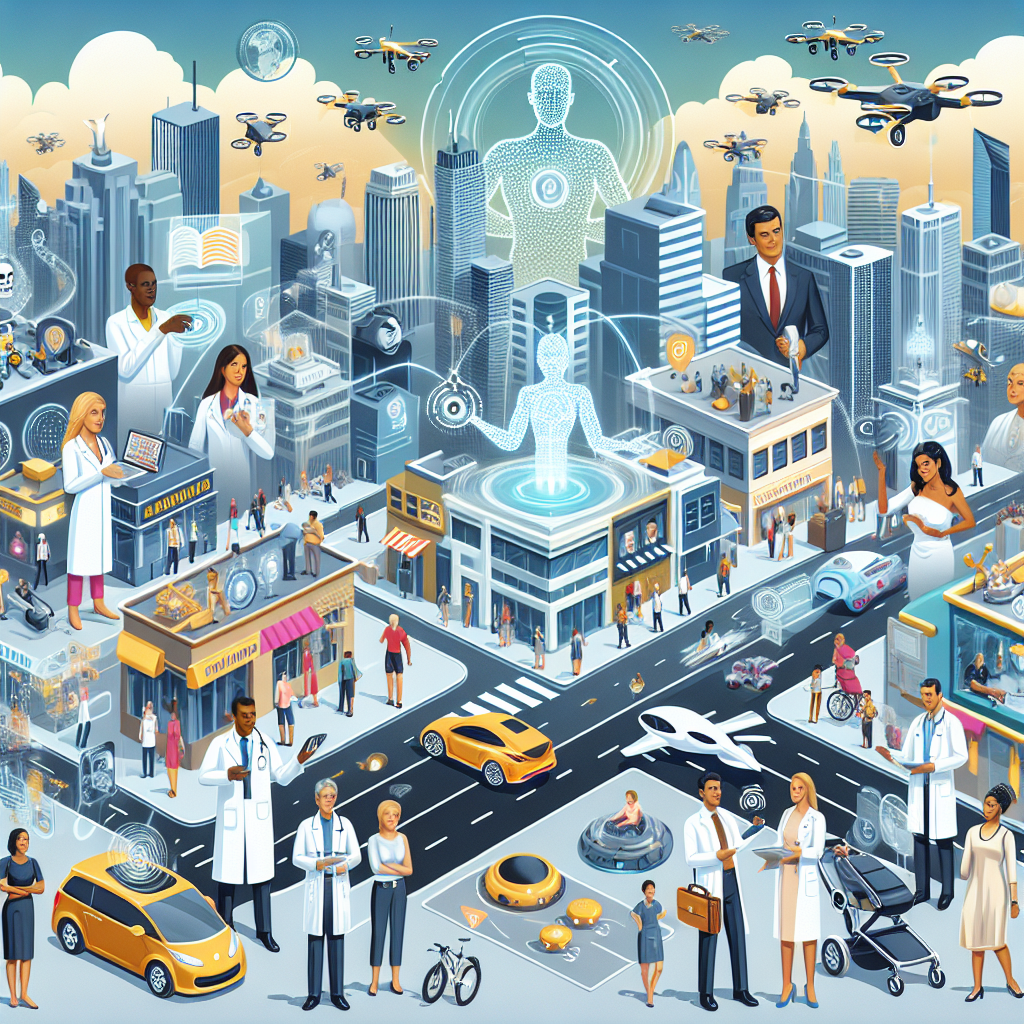The Future of Work: How AGI is Changing the Landscape of Employment
Artificial General Intelligence (AGI) is a term that has been buzzing around the tech industry for years, but what exactly is it and how is it going to change the way we work? AGI refers to a form of artificial intelligence that is capable of learning and understanding any intellectual task that a human being can. This means that AGI has the potential to perform a wide range of tasks that currently require human intelligence, such as problem-solving, creativity, and decision-making.
As AGI technology continues to advance, it is becoming increasingly clear that it will have a profound impact on the future of work. In this article, we will explore how AGI is changing the landscape of employment and what this means for workers and businesses alike.
The Rise of AGI in the Workplace
AGI technology is already making its way into the workplace in a variety of industries. From healthcare to finance to transportation, businesses are leveraging AGI to streamline processes, improve efficiency, and make better decisions. For example, in the healthcare industry, AGI is being used to analyze medical images and detect diseases at an early stage, leading to faster and more accurate diagnoses.
In the finance industry, AGI is being used to analyze market trends and make investment decisions in real-time. And in the transportation industry, AGI is being used to optimize routes, reduce fuel consumption, and improve safety. These are just a few examples of how AGI is transforming the way we work, and the possibilities are endless.
Impacts on Employment
While AGI has the potential to bring about significant benefits in terms of productivity and efficiency, it also raises concerns about the future of employment. As AGI technology becomes more advanced, there is a growing fear that it will replace human workers in many industries, leading to widespread job loss and economic upheaval.
One of the main reasons for this concern is that AGI has the ability to perform tasks that were previously thought to be exclusive to humans. This means that jobs that require high levels of cognitive ability, such as data analysis, problem-solving, and decision-making, could be at risk of being automated by AGI technology. This could have a profound impact on workers in these industries, as they may find themselves displaced by machines that can perform their jobs more efficiently and at a lower cost.
On the other hand, AGI also has the potential to create new job opportunities in industries that have yet to be disrupted by automation. For example, as AGI technology becomes more advanced, it may open up new possibilities in fields such as robotics, artificial intelligence, and virtual reality. These emerging industries could create a demand for workers with specialized skills and expertise in AGI technology, leading to new job opportunities for those who are willing to adapt and learn.
FAQs
Q: Will AGI replace all human workers?
A: While AGI has the potential to automate many tasks currently performed by humans, it is unlikely that it will completely replace all human workers. There will always be a need for human workers in certain industries that require creativity, emotional intelligence, and interpersonal skills.
Q: How can workers prepare for the rise of AGI in the workplace?
A: Workers can prepare for the rise of AGI by acquiring new skills and expertise that are in high demand in industries that are likely to be affected by automation. This may involve pursuing education and training in fields such as data science, artificial intelligence, and machine learning.
Q: What are the ethical implications of using AGI in the workplace?
A: The use of AGI in the workplace raises important ethical questions about the impact of automation on workers, job security, and income inequality. Businesses and policymakers will need to address these issues in order to ensure that the benefits of AGI technology are distributed equitably.
In conclusion, AGI has the potential to revolutionize the way we work, but it also raises important questions about the future of employment and the impact on workers. As AGI technology continues to advance, it will be crucial for businesses, workers, and policymakers to adapt and prepare for the changes that lie ahead. By embracing the opportunities that AGI presents and addressing the challenges it poses, we can ensure that the future of work is one that benefits everyone.

